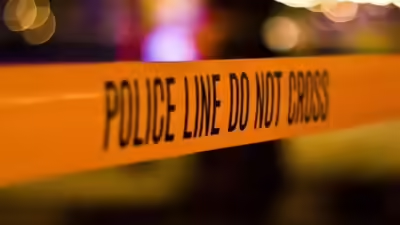Grisly Caste Cruelty: 12-Year-Old Dalit Boy’s Death Under Investigation as Caste Crime in Himachal Pradesh
The death of a 12-year-old Dalit boy, who allegedly died by suicide after being beaten and confined in a cowshed, has sparked outrage and is now being probed as a caste atrocity in the Rohru subdivision of Shimla district, Himachal Pradesh.
What Happened
On September 16, the Class 6 student—belonging to the Koli Dalit community—is said to have entered the house of an upper-caste Rajput woman, Pushpa Devi, in Limbda village while attempting to seek help from her shop next door.
The absence of anyone at the counter pushed him to step inside, looking for assistance. Immediately, he was accused of “polluting” her house.
According to the family, Pushpa Devi, along with two other women, reportedly locked him inside a cowshed, mercilessly beat him, and threatened that he would not be released till his parents procured a goat for sacrifice, supposedly to “purify” the house.
The pressure and fear overwhelmed the boy. He allegedly managed to break an iron mesh and flee, but later ingested pesticide commonly used in apple orchards, and was found hidden in the orchard by his mother.
He was rushed to Rohru Civil Hospital, then referred to Indira Gandhi Medical College & Hospital, Shimla, but passed away during treatment on September 17.
An FIR was filed on September 20, initially under abetment of suicide. Later, on September 26, the stringent SC/ST (Prevention of Atrocities) Act was added to the charges — by then, Pushpa Devi had already secured interim bail from the Himachal Pradesh High Court because the more serious charges were not in the original FIR.
Investigation, Legal Gaps, and Developments
- Scheduled Caste Commission Intervention: The Himachal Pradesh Scheduled Caste Commission has ordered the police to submit a detailed report within three days, condemning the delayed invocation of the SC/ST Act in the FIR.
- Criticism of Police Handling: Commission chairman Kuldeep Dhiman faulted the police for omitting the SC/ST Act initially, noting that this oversight allowed the accused to obtain bail.
- Government Response: Chief Minister Sukhvinder Singh Sukhu is said to be personally monitoring the case. The government has termed the incident “extremely unfortunate.
- Condemnation by Political & Civil Groups: The CPI(M) strongly condemned the incident, calling the violence unacceptable even in a literate state.
- Forensic Probe Underway: Police say they have collected forensic evidence from the cowshed and orchard, and the preliminary postmortem report is inconclusive.
- Naming of Accused: The FIR names Pushpa Devi and two other women. Investigations are ongoing to identify all involved individuals and bring them under charges.
A Ghastly Act of Mental and Physical Torture
This is not a mere tragedy, but a ghastly act of caste violence and mental torment. The brutality is multiple:
- A child was humiliated and subjected to “purification” rituals purely based on his caste.
- He was beaten and locked up like an animal, threatened until his parents complied with a demand for a goat.
- The trauma and shame drove him to take his own life.
This case stands as a chilling reminder that even in 2025, untouchability and caste-based violence persist in subtle and savage forms. That the boy was forced to pay with his life is a statement on how deep-rooted caste prejudice remains.
What Must Be Done
- Full enforcement of the SC/ST Atrocities Act: No more delays in lodging charges; bail must be revoked for the accused who secures relief before proper charges are added.
- Safe protection for the victim’s family: Witnesses and family members must be safeguarded against intimidation or coercion.
- Transparent forensic, DNA, and medical analysis: The death must be investigated in a rigorous, independent manner so truth may emerge.
- Prosecution of all involved, not just the visible offenders: Anyone who abetted, instigated, or tacitly approved must face justice.
- Compensation & rehabilitative support: The bereaved family deserves immediate financial relief, trauma counselling, and social protection.
- Public and institutional censure: Schools, local bodies, and community institutions must publicly renounce such practices and promote caste equality.
Only when the law is strictly enforced, and society refuses to tolerate discrimination, can such acts of violence be prevented in the future.
#JusticeForDalitBoy #CasteAtrocity #HimachalPradesh #SCSTAct #EndUntouchability #DalitRights #BringCulpritsToBook #SocialJustice #NoFearNoSilence #ExposeCasteViolence #TruthMustPrevail




